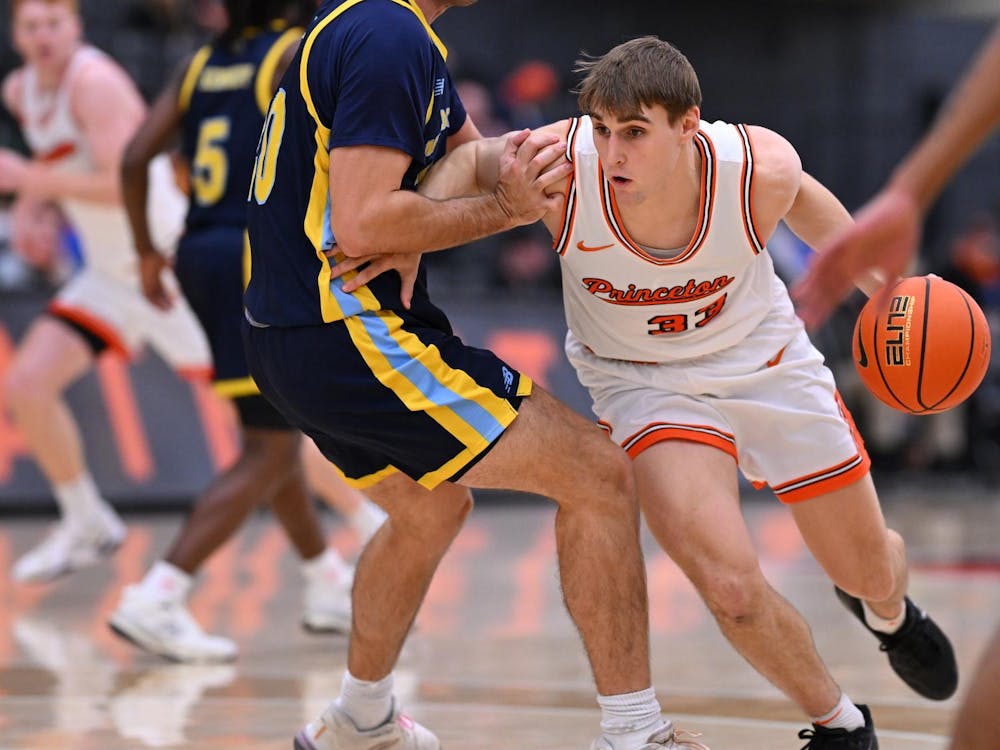Who says Princeton reunions only happen once a year?
Half a world away and over a month after the P-rade, four Tiger alumni and the reigning Ivy League Player of the Year met up in Perth, Australia to help the United States Men's Lacrosse Team to victory in the World Men's Lacrosse Championships.
In the finals, the U.S. — powered by two third quarter goals from junior standout Ryan Boyle — came back from a two-goal deficit to defeat Canada 18-15 in a rematch of the last World Championship. Like the Olympics and World Cup, the Lacrosse World Championships are held every four years. In 1998, when the tournament was held in Baltimore, the U.S. team defeated Canada 15-14 in overtime.
Since the tournament began in 1967, the U.S. has captured every title but one. In 1978, Canada took home its only crown with a sudden-death overtime victory over the Americans.
The 2002 team featured an impressive mix of past and present Princeton stars. Joining Boyle were defenseman Ryan Mollet '01, midfielder Matt Striebel '01, goalie Trevor Tierney '01 and attackman Kevin Lowe '94.
The team also boasted two of college's most prolific scorers from last year. The front line featured Syracuse attackman Michael Powell as well as Eastern College Athletic Conference Offensive Player of the Year Steve Dusseau from Georgetown.
But the limelight belonged to the Tigers.
When all was said and done, two of the ten players named to the tournament's All-World team were Orange-and-Black alums. Mollet was one of three defensemen named, while Tierney took home the trophy for Best Goalkeeper of the event.

Midfielder Doug Shanahan, a Hofstra graduate, garnered tournament MVP honors.
The tournament opened with round-robin play in three groups of five countries each. The United States was in the top division, along with Canada, the Iroquois Nation, England and Australia. Interestingly, however, not all 15 teams in the tournament were vying for the title. Because the game of lacrosse is still in its infancy on the international stage, most of the countries in the tournament could not compete with the U.S. and Canada.
Consequently, only the top four teams in the first division and the winner of the second division advance to the medal round. The group B winner then plays the fourth-place team from group A to narrow the field to four, with a semifinal and final match to be played after that.
The U.S. began its conquest with an easy 21-6 victory over the Iroquois Nation in the opening match of the championships. Lowe scored four times in the rout, and Boyle helped a balanced U.S. attack contributing three goals and three assists.

Lowe and Boyle continued their dominant play as the U.S. quashed Australia's efforts in a 22-7 thrashing of the host country. Lowe again registered four goals while Boyle's two-goals and three assists brought his two-game point total to 11.
In their third game, the U.S. team found itself in a tight match, leading Canada by only two goals at the half. But the Stars and Stripes broke the game open in the second half, scoring seven straight goals and securing an easy 14-9 win.
Having already assured itself of a spot in the medal round, the team let go of all apprehensions and slaughtered England 21-3 in the final match of round-robin play. Twelve different players scored in the game.
In the semifinal match, the U.S. again drew the Iroquois Nation. Though a slightly closer game than the first round, the team moved into the finals with a swift 18-8 dismissal of the Iroquois.
In the championship game, Canada looked as though it might sniff out an upset in the Land Down Under. The Canucks took a 9-7 lead into halftime on the strength of solid first half play from Canadian attackman John Grant.
The U.S., however, came out on fire in the second half. Employing a patient and balanced attack, the U.S. team, aided by two goals each from Striebel and Boyle and one each from Lowe and Mollet, sealed the victory and another title for the U.S.
The United States has now won six straight International Lacrosse Federation World Championships thanks in no small part to the contributions of five of Princeton's finest.







